Turn your passion for mixology into a rewarding career with a bartending license from 1800 Bartending School in Rego Park, NY. Gain the skills you need to step into the hospitality world with confidence.
Reviews
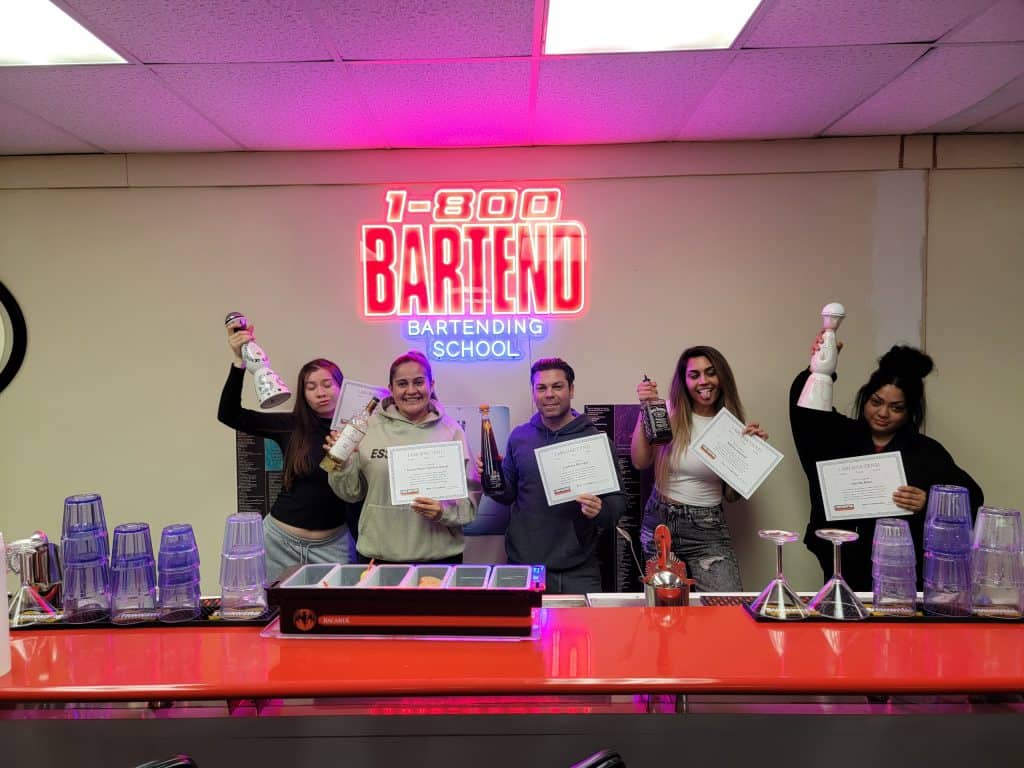
Learn More About 1800 Bartending School
At 1800 Bartending School, we’re here to help you build a successful future in bartending. Our programs are designed to provide a mix of practical training and industry insights, making it easier for you to step into your first job with confidence.
Based in Rego Park, NY, we’ve earned a reputation for offering valuable, hands-on learning experiences. From mixology techniques to understanding Queens’s licensing requirements, our instructors guide you every step of the way. Call us today at 516-212-9850 to find out how you can start your bartending journey.
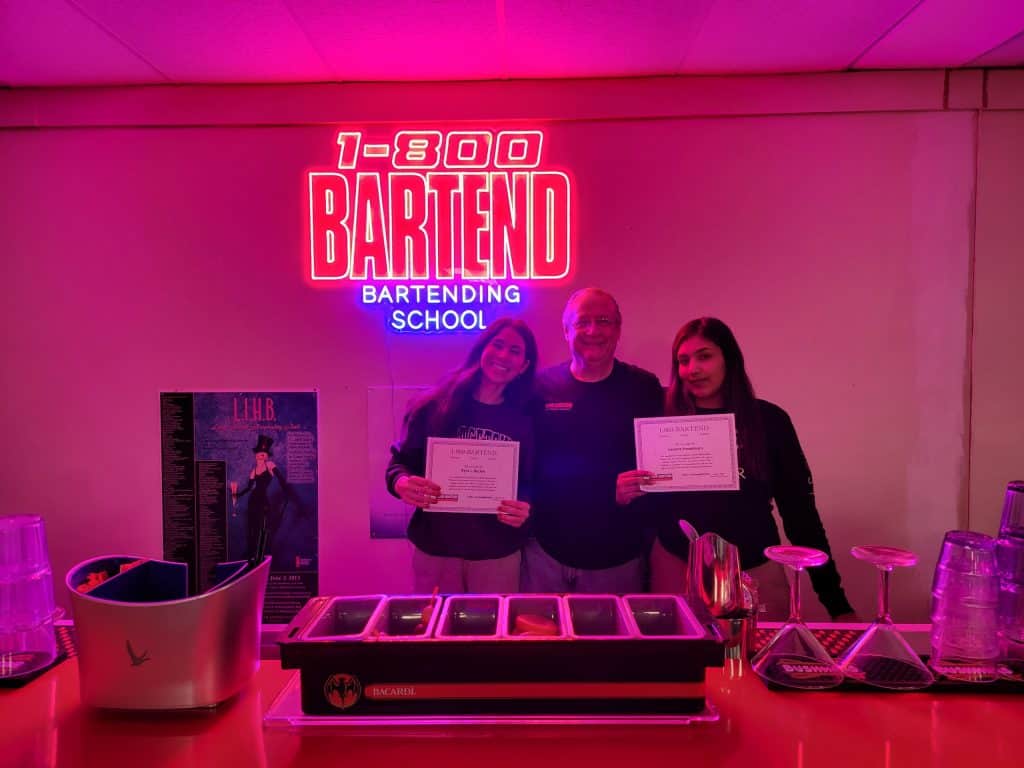
Steps to Bartending Certification
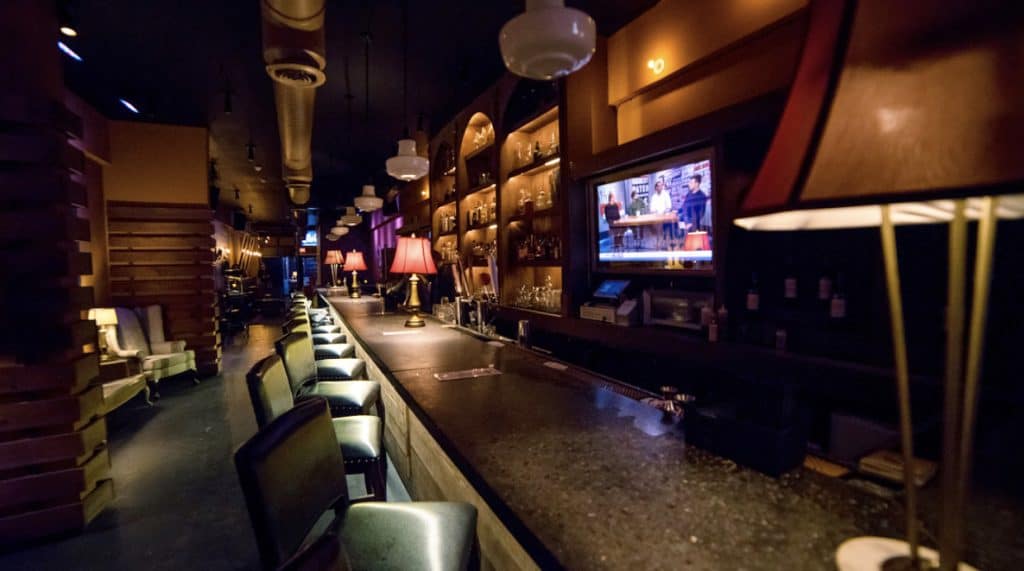
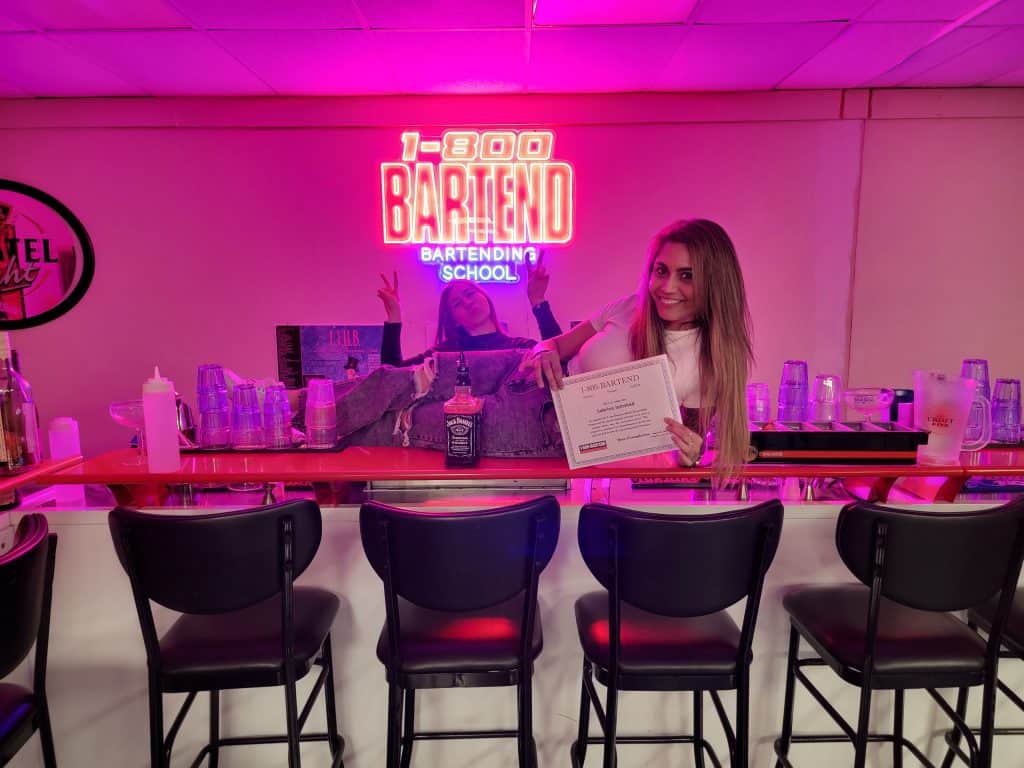
Why Certification Matters
A bartending license is essential for anyone looking to work as a bartender in Rego Park, NY. It demonstrates your commitment to professionalism and responsible alcohol service in Queens.
At 1800 Bartending School, our ATAP certification program will equip you with the knowledge and skills to create innovative cocktails, provide excellent customer service, and thrive in a dynamic bar setting. Our mixology classes cover everything from crafting drinks to understanding licensing, so you’ll feel ready to take on your first shift. Contact us today at 516-212-9850 and take the first step toward a thriving career in bartending.
Rego Park is built on lands originally part of the Leni Lenape Nation, possibly inhabited by members of the Canarsee band. By 1653, though, English and Dutch farmers moved into the area and founded a community called Whitepot, which was a part of the Township of Newtown. Whitepot is believed to be so named because Dutch settlers named the area “Whiteput”, or “hollow creek”; later, English settlers Anglicized the name. The Remsen family created a burial ground, which is still located on Alderton Street near Metropolitan Avenue. The colonists also founded the Whitepot School, which operated until the late 19th century.
The area turned out to be good for farming, the colonists cultivated hay, straw, rye, corn, oats, and vegetables. The original Dutch, English, and German farmers sold their produce in Manhattan; by the end of the 19th century, though, Chinese farmers moved in and sold their goods exclusively to Chinatown.
The settlement was renamed Rego Park after the Real Good Construction Company, which began development of the area in 1925. “Rego” comes from the first two letters of the first two words of the company’s name. The company built 525 eight-room houses costing $8,000 each. Stores were built in 1926 on Queens Boulevard and 63rd Drive, and apartment buildings were built in 1927-1928. In 1930, the Independent Subway System began work on eight IND Queens Boulevard Line stations in the area, at a cost of $5 million. The subway extension was concurrent with the Real Good Construction Company’s completion of apartment buildings near Queens Boulevard and one-family homes throughout the rest of the neighborhood.
Learn more about Rego Park.Here are some bartending-related links:
Mon - Sat:
9AM - 5PM
Sunday:
Closed
Sign up, get trained, and let’s get you behind the bar in just one week. Your future in bartending starts now!
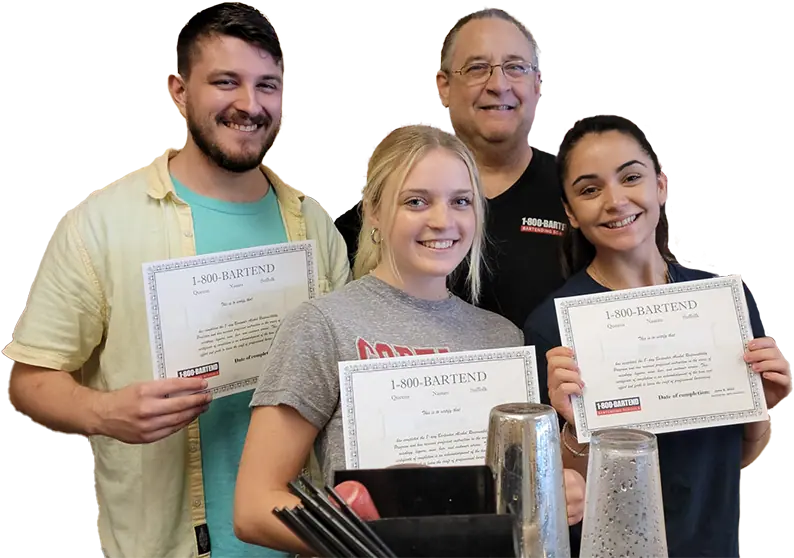
1-800-Bartend
For Students
For Businesses
Helpful Links